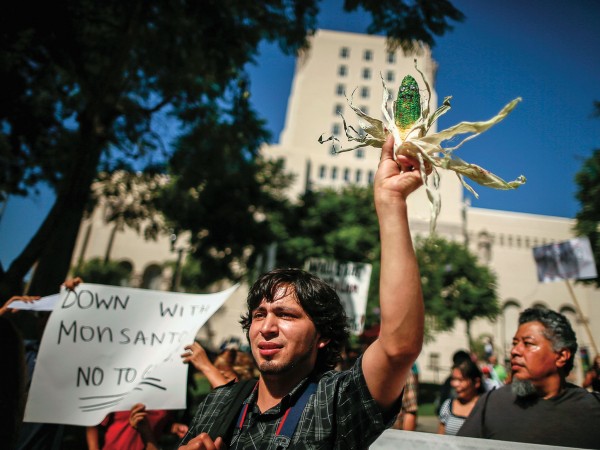
Agricultural Researchers Rattled by Demands for Documents from Group Opposed to GM Foods
The fierce public relations war over genetically modified (GM) food has a new front. A nonprofit group opposed to GM products filed a flurry of freedom of information requests late last month with at least four U.S. universities, asking administrators to turn over any correspondence between a dozen academic researchers and a handful of agricultural companies, trade groups, and PR firms. The scientists—many of whom have publicly supported agricultural biotechnologies—are debating how best to respond, and at least one university has already rejected the request.
February 11, 2015 | Source: Science Magazine | by Keith Kloor
The fierce public relations war over genetically modified (GM) food has a new front. A nonprofit group opposed to GM products filed a flurry of freedom of information requests late last month with at least four U.S. universities, asking administrators to turn over any correspondence between a dozen academic researchers and a handful of agricultural companies, trade groups, and PR firms. The scientists—many of whom have publicly supported agricultural biotechnologies—are debating how best to respond, and at least one university has already rejected the request.
“It seems like a fishing expedition to me,” says geneticist Alison Van Eenennaam of the University of California (UC), Davis, one of six UC researchers targeted by the requests. “I am very worried [the correspondence] is going to be used to sully the reputations of scientists.” The tactic is familiar in another controversial area, climate science, where researchers have faced an avalanche of document requests from climate change skeptics.
The group, U.S. Right to Know (USRTK) of Oakland, California, says it has no vendetta. It has targeted only researchers who have written articles posted on GMO Answers, a website backed by food and biotechnology firms, and work in states with laws that require public institutions to share many internal documents on request, says Executive Director Gary Ruskin. USRTK is interested in documenting links between universities and business, he says, and is “especially looking to learn how these faculty members have been appropriated into the PR machine for the chemical-agro industry.”
Ruskin is no stranger to the GM food debate. He helped manage an unsuccessful 2012 effort to pass a California ballot initiative requiring the labeling of food products containing GM ingredients. Late last year, he helped found USRTK, which works “to expose what the food industry doesn’t want us to know. … We stand up for the right to know what is in our food and how it affects our health.” The group’s three board members include Juliet Schor, a prominent economist at Boston College. USRTK’s website says its sole major donor (more than $5000) is the Organic Consumers Association, a nonprofit group based in Finland, Minnesota, which has donated $47,500.
In the requests, Ruskin seeks any letters and e-mails exchanged after 2012 between the scientists and 14 companies and groups. The list includes Monsanto, Syngenta, DuPont, Dow, major biotech and grocery trade groups, and communications firms including FleishmanHillard and Ogilvy & Mather. “The records disclosed … will be used in preparation of articles for dissemination to the public,” states one request obtained by ScienceInsider.
